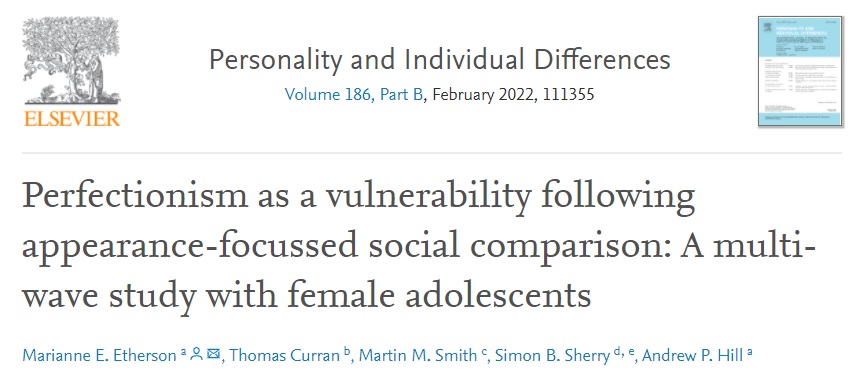I regularly work with teenage girls who have high levels of perfectionism (a trait where we have incredibly high standards and harsh self-criticism) and find this has become a double edged sword for them. On the one hand it means they set super high goals, they will work incredibly hard to achieve them and they usually get close (never actually there because their true goal of perfection doesn’t exist). On the other hand those unachievable goals prompt a struggle with their mental wellbeing as they constantly feel under pressure and massively fear failure. One area we often discuss is social media and how the comparison it prompts can often add to the pressure and fear of failure.
With 95% of 13-15 year olds using social media (and 13% of girls of this age using it for over 3 hours a day) it is important we understand the impact it can have on their mental wellbeing. With all the bragging, promoting and ‘impression management’ which takes place on social media there are numerous opportunities for triggering upset or feeling inferior. A specific type of stressor which can come from social media is appearance-focused upward social comparison which is an academic way of saying we compare ourselves with people we think are more attractive than us.
A new piece of research lead by Marianne Etherson at York St John University (published in Personality and Individual Differences) then intrigued me as it looked at exactly this issue by asking 135 teenage girls to complete a number of questionnaires once a week for 4 weeks. The Questionnaires measured perfectionism, depressive symptoms and body appreciation. They also asked the girls if they had compared themselves that week on social media.

There are three types of perfection and two considered in this paper are rigid and self-critical. Previously it has been found that rigid perfectionism (where you think everything you do should be flawless, set yourself incredibly high standards and feel like you are a failure if you don’t hit them) will increase your risk of anxiety, negative feelings and guilt. The authors here were looking to see if there was a negative impact of social media comparisons with this type of perfectionism. They didn’t find it to be so. What they did find though was that those girls with high levels of self-critical perfectionism (perceiving excessive expectations from others, worries about letting others down or making mistakes) had more depressive symptoms and lower body appreciation. These levels were even more pronounced when the girls had been comparing themselves with others on social media.
This study suggests that when we, as coaches, teachers or psychs, are working with teenage girls we could be looking out for those with high levels of self-critical perfectionism so we can work with them to look after their mental wellbeing and teach them ways to keep themselves mentally safer when they use social media. For these girls we might want to help them audit their social media and proactively design the way they use it so they get the stuff they need: information, inspiration, comedy or news but avoid the stuff that makes them feel rubbish; like influencers, those in their sport or hobby who boast and blag or those who make them feel less worthy.

Recent Comments